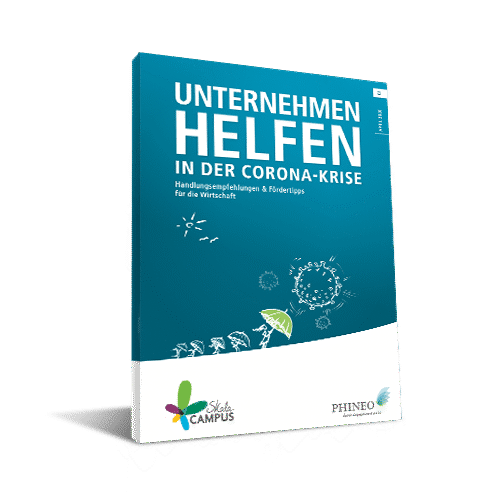7 Characteristics of dubious donation organizations
Most of the approximately 20,000 organizations collecting donations in Germany do outstanding work and handle the money entrusted to them with care. But of course there are also black sheep that you can recognise by this behaviour:
1. they are put under pressure.
You can recognise dubious organisations by the fact that they do not give you time to think or set an ultimatum. The advertising material is strongly emotional (suffering children with sad eyes) and appeals above all to your guilty conscience.
Donations should always be made voluntarily and out of your own motivation. A good decision is based on sufficient information. You donate not only with your heart, but also with your mind.
2. the organisation is intrusive.
Dubious organisations like to use direct confrontation to embarrass donors. Care should be taken if you receive annoying phone calls or someone rings the doorbell.
Personal conversations are of course always a good way to get to know an organisation better. Serious organisations can be recognised by the fact that you are first sent information material and that the distance is maintained throughout the whole process.
In addition, you will receive sufficient information about which goals and target groups the project wants to reach, how it intends to achieve its goals and how successful it has been so far (evidence of effectiveness!).
3. you are made false promises.
You should become suspicious if an organisation promises the moon and pursues exaggerated, unrealistic goals.
Pay attention to whether the goals of the organisation are comprehensible and realistic. You can recognize this by, among other things, whether the organization provides detailed information about individual stages and names concrete activities with which these goals are to be achieved.
4. They hold a collection box under your nose.
Donation cans (especially those that are not sealed) and collectors who do not have an official permit or a collection card can be a sign of dubious meshes.
In most federal states, a collection card is unfortunately not obligatory. If you are unsure of who you are dealing with, ask for a transfer form and find out about the organisation at home. This also has the advantage that you can deduct the donation from your taxes.
Downloads

Helfen in der Corona-Krise – Handlungsempfehlungen & Fördertipps zum Kopieren
Fördertipps und Praxisbeispiele aus und für die Wirtschaft
5. you should sign a supporting membership.
From the principle a good thing, vigilance is especially important with sustaining memberships. Dubious organisations like to hide unpleasant surprises in the small print: increasing monthly fees, complicated termination, business abroad.
Sponsoring memberships are not subject to the Doorstep Cancellation Act. This means that you enter into a legally binding commitment, which you can only terminate again by giving written notice. Because you are obligated for months and years, you should in such cases be particularly critical of who you are actually supporting.
6. you receive false or insufficient information.
There is no independent information about the organisation, the website lacks an imprint and contact persons are not even named? These are clear signs of a dubious organization.
Ideally, information on the use of the donations as well as on the working methods and structure of the organisation is freely accessible. Serious organisations answer questions comprehensively and promptly.
7. the website makes a dubious impression.
Special caution also applies to online donations. Fraudsters like to pretend to be employees of a well-known donation organisation or to report in the course of a natural disaster. If you are asked by e‑mail to give contact and account details or if you are redirected to dubious websites, a healthy dose of mistrust is advisable.
Find out how long the organisation has been active and whether there are any media reports. Check the fees and commissions for donations via SMS and donation portals.
Look for the seal when donating
If you really want to be sure that your donation is safe, make sure that the organization has undergone independent third-party verification. Information is provided, for example, by the donation seal of the German Central Institute for Social Issues (DZI) and the effect seal of PHINEO.
Tested and awarded projects that work transparently and have a high social impact can be found in our overview of good and tested donation projects.